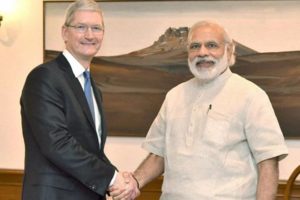 India’s audit landscape is undergoing a quiet change as the new rules for time-based rotation of auditors gather pace.
India’s audit landscape is undergoing a quiet change as the new rules for time-based rotation of auditors gather pace.
Early audit changes this year indicate the larger entities, such as Deloitte’s network, could face some pressure on their dominance. And, those lower down the order could gain ground. Leading firms are looking at increasing the focus on quality and are exploring new opportunities, such as private equity-backed ones in the unlisted space. Smaller entities such as Walker Chandiok, part of the Grant Thornton network, have ramped up their staff strength to handle new clients.
Close to 400 companies listed on the National Stock Exchange (NSE) have already changed auditors over the past three years, with clients changing hands among top audit firms. There is also pressure on pricing as the war for market share begins to intensify among top audit firms. This has resulted in a spike in demand for experienced auditors, with joining remuneration seeing 20-30 per cent jumps.
Audit giants see dominance waning
The revamped Companies Act of 2013 said every Indian company with a paid-up equity capital of Rs 20 crore or more was required to replace auditors after two five-year terms in succession. The law had given a three-year transition period for those which had to change auditors, ending March 2017. In the current financial year, 2016-17, around 40 NSE-listed companies have already switched to new auditors. More announcements are expected over the coming three months, shows data from Prime Database. In 2014-15 and 2015-16, a total of 339-NSE listed companies had settled for new auditors.
“We will be rotating off some of the larger companies. Simply because of the number and size of listed companies we audit, there will be changes in our audit market share,” said Shyamak Tata, partner, Deloitte Haskins Sells. He said large-scale changes in their portfolio were only expected from the third year onwards.
The Deloitte group’s network of audit companies is expected to see the largest churn. It has the biggest number of marquee audit clients. The network earned Rs 300 crore in fees for the year 2014-15, representing 15 per cent of the total pie of the Rs 2,000 crore audit fee market for 1,451 NSE-listed firms. It also audited the highest number of listed entities, at 149. The EY network made Rs 121 crore from the 108 companies. The PwC network audited 65 listed ones but had the lowest fee income among the ‘Big Four’ in audit, of Rs 65.6 crore. The KPMG network audited the lowest number of listed entities, at 58; however, it earned more than PwC at Rs 99.4 crore. Companies are still in the process of reporting the FY16 numbers.
Churn on
Early numbers suggest this pecking order is already going through a churn. A Business Standard analysis of data provided by Prime Database showed of the 41 auditor changes reported so far this year in listed companies, the KPMG network was the biggest gainer, with 11 new firms for the financial year ending March 2017. It was rotated out of two existing clients, a net gain of eight for FY17. The EY network added six and lost two, while Walker Chandiok gained a lone company. The PwC and Deloitte networks have lost more than they’ve gained so far this year. At the end of the changes, other smaller audit firms had 23 clients, up from 18 in FY16, among these 40 companies.
Grasim, Cipla, Biocon, Vedanta, Hindustan Zinc, United Spirits and Century Textiles are some of the large companies that have reported auditor changes for the new financial year. In FY16, as many as 168 listed companies changed their auditors. The Deloitte network was the top gainer among the first five, gaining 17 and losing 11. The KPMG network was also a net gainer, with seven gains and four losses. EY, PwC and Walker Chandiok lost more than they gained.
In FY15, when 171 companies changed auditors, Walker Chandiok’s client list swelled by eight. While the EY network and Deloitte registered a net gain of one each, the KPMG and PwC networks recorded a net loss of four and one, respectively.
Strategy
Deloitte, expecting a strong attack on its dominance, is looking for greener pastures. “We are large in the listed company space, and have a majority share across industry sectors. Our audit breadth and experience in this changing regulatory environment provides us, currently and over the next two-three years, an opportunity to provide audit services to untapped listed and unlisted entities, with a bias in favour of unlisted clients,” said Tata.
Other large entities are also gearing up for the transition. Russell Parera, partner, Price Waterhouse Chartered Accountants LLP, said his network had embarked on a transformation programme focussing on people, technology and processes for close to two years. “We have taken significant efforts in training our people for this change. Also, with rotation kicking in, it is going to be important to focus on investing in relationship building.”
The PwC network also bets on technology as another aspect, which will go a long way in these ever-evolving market scenario. “Today, technology has become a crucial enabler, with more data audits getting conducted. It is also relevant in cross border and multi-location audits to ensure consistency. We as a firm have been preparing for this change,” Parera added. Tata of Deloitte spoke of pricing pressure in certain pockets. “We are seeing this as a section of the market looks to gain market share. There will be some short- term blips. However, with continuing investment in innovation and quality, which will lead to enhancing value to clients, over the short term, this will correct. We already have a large pool of audit talent. We are looking at consolidating and not dramatically increasing the headcount. Audit will remain the primary identity of our firm and, with our focus on quality, we will retain our leading position in the overall space.”
Impact
According to Akhil Bansal, deputy chief executive of KPMG India, with European audit rotation also coming into effect, the impact of Indian mandatory company rotation regulations will be felt around the globe. “The choice of the audit firm in India might influence the choice in Europe and other geographies,” he added. Bansal said the impact of mandatory firm rotation will also be felt on other services, including internal audit, due to stringent independence requirements. “It is important that the companies make their choice of audit firm early, since the best resources will be committed to clients who are first off the block,” he said.
Audit companies have been preparing for this, with investment in personnel, training and ramping up headcount numbers. For instance, the Grant Thornton network plans to double its auditor numbers across its network from 1,500 to 3,000. Vishesh Chandiok, national managing partner, Grant Thornton India LLP, said: “Several local Indian firms are very competent and the belief that only us international firms are the option is misplaced. Not all 50,000 firms for each company but certainly 50 firms can audit most companies, not only four of five firms.”
The EY group, which has 3,000 auditors across its network, added 400 over the past 12 months. “Internally, our focus continues to be on strengthening our teams with more hiring, greater investments in training, sharpening technical and industry capabilities and increasingly, using more technology and, data analytic tools when performing audits,” said Sudhir Soni, national leader, SR Batliboi, the Indian member-firm of EY Global.
Most audit companies have resorted to internal promotions and inducting of new talent to expand resources.
With the threshold for audit rotation being low, most audit companies are looking at tapping the unlisted private audit space in a big way. That’s a space the Deloitte network companies plan to play the game hard, indicated Tata. The client churn among audit firms is expected to last over the next two-three years, before it stabilises.







